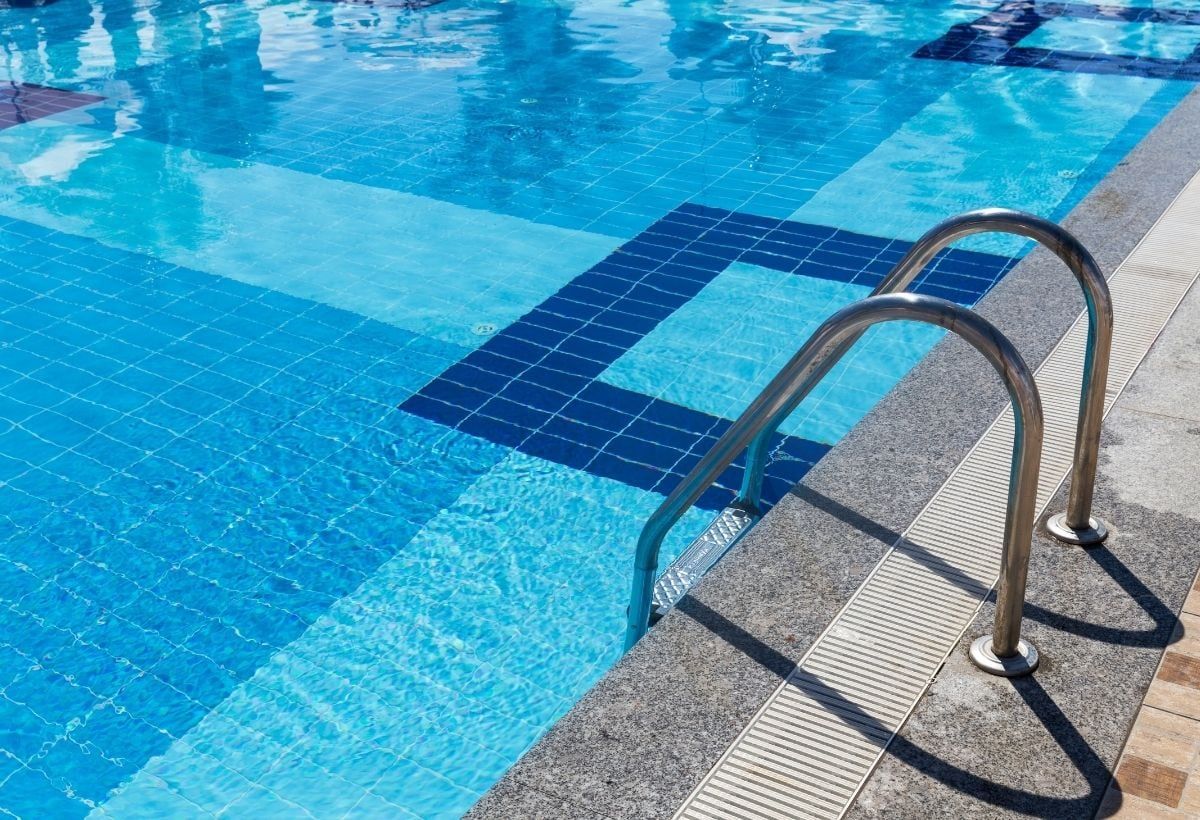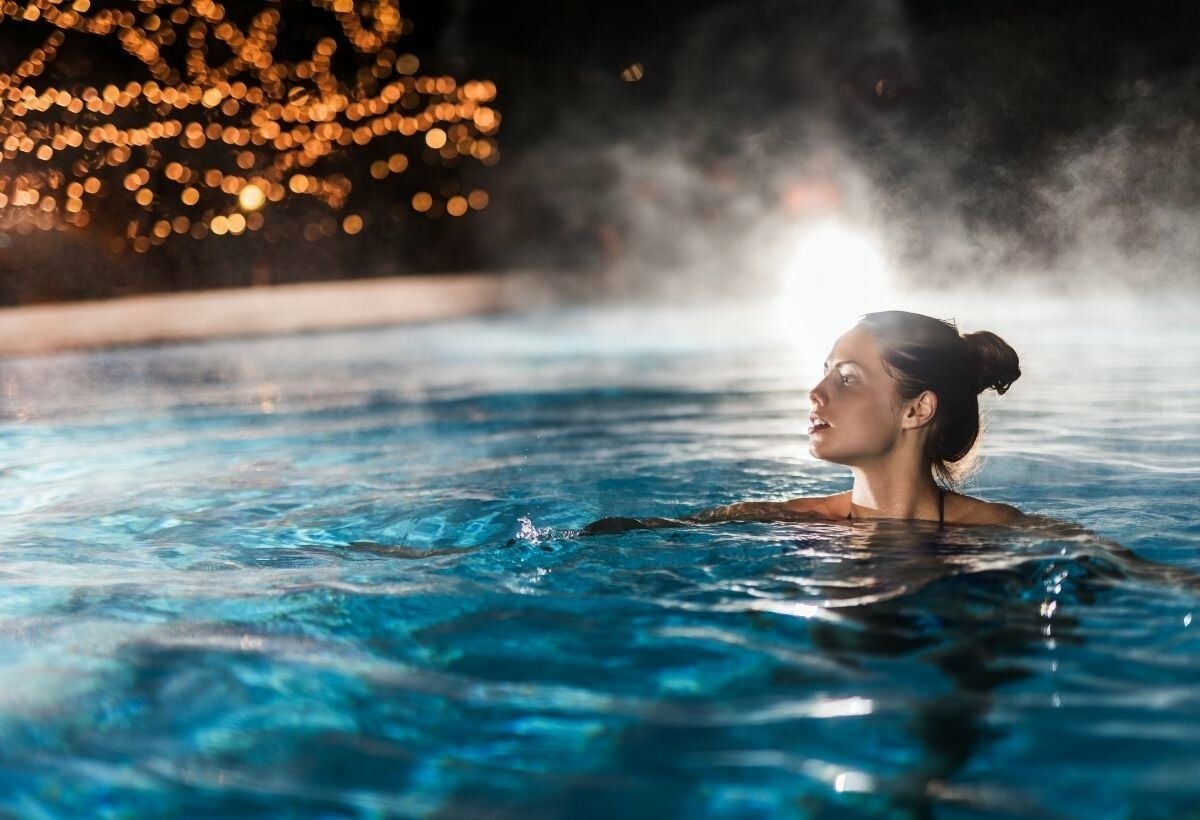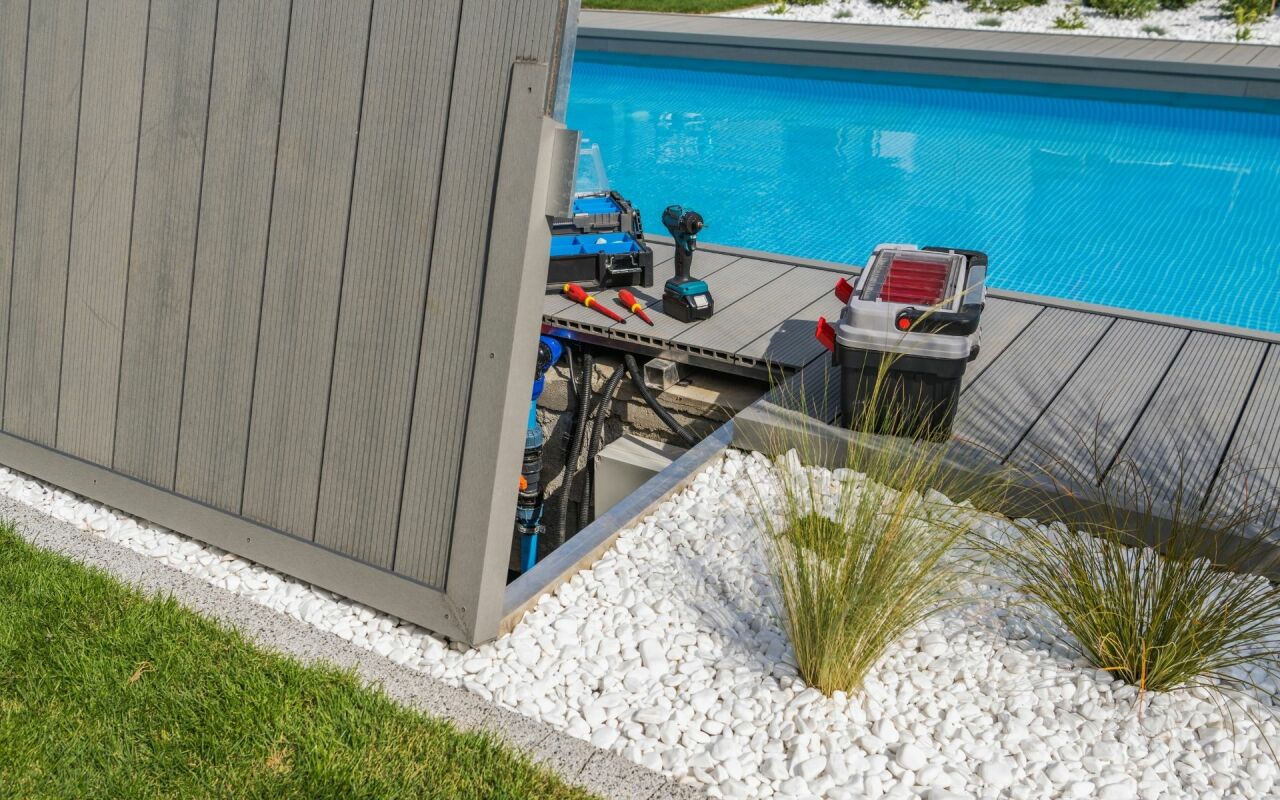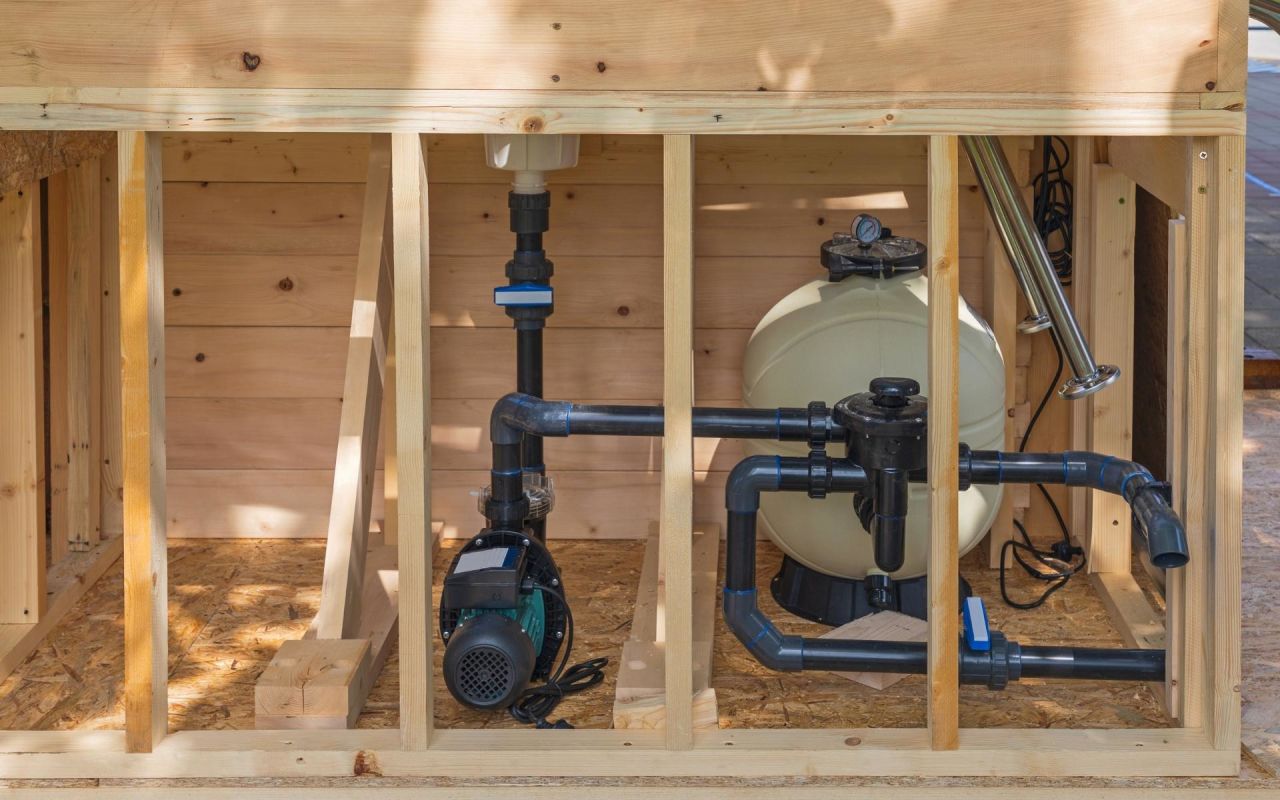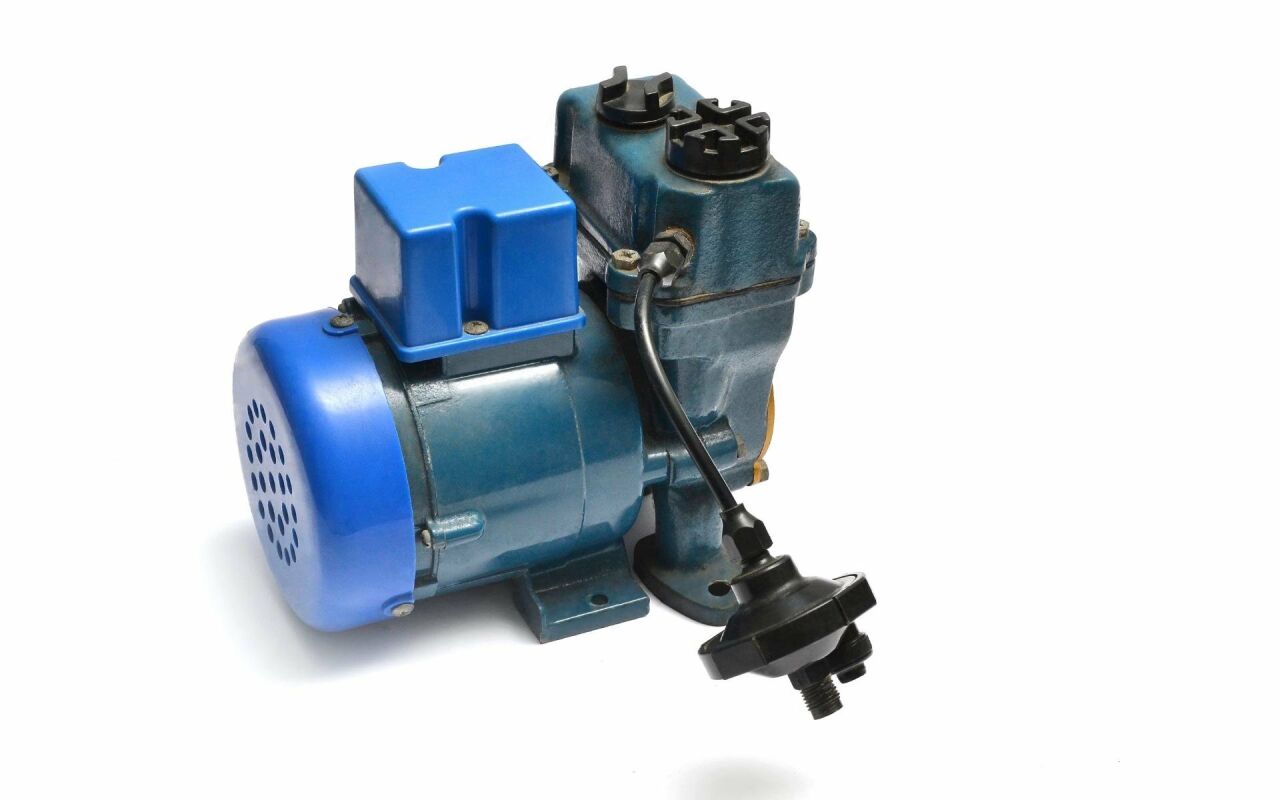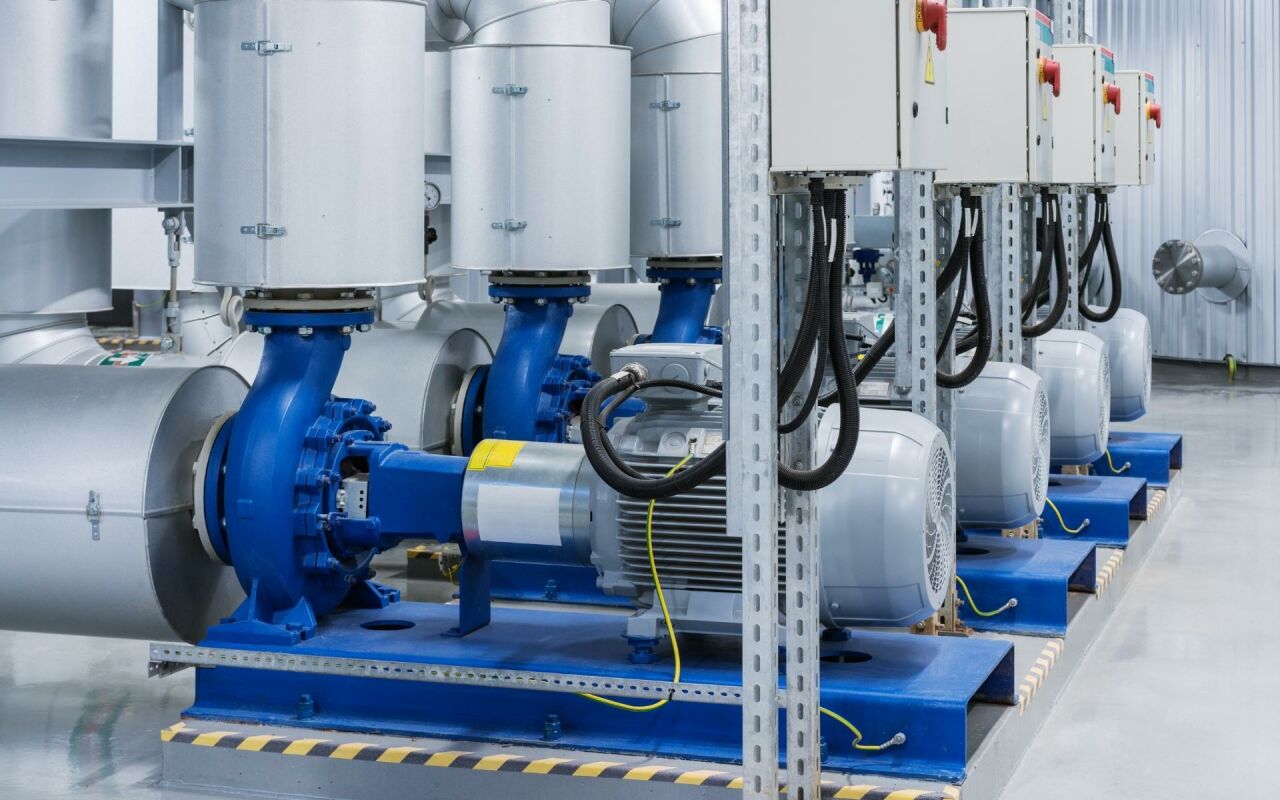Blog Tags
Havuz için gerekli malzemeler nelerdir?
Bir havuz inşa etmek veya mevcut bir havuzu yenilemek, pahalı ve zaman alıcı bir süreç olabilir. Ancak, doğru malzemeleri seçerek ve süreci doğru bir şekilde planlayarak, bu süreci daha kolay ve daha az stresli hale getirebilirsiniz.
Havuz Pompası Nasıl Seçilir?
Havuz Pompası Nasıl Seçilir?
Basic Equipment in Pool Maintenance: Pool Pump, Filter and Cleaning Materials
As a pool owner, you know that while you can enjoy having crystal clear water, you also need to take care of your pool properly. It is very important to choose and use the right equipment to maintain the water quality of your pool and ensure its longevity. Here are the cornerstones of pool maintenance: pool pump, filter and cleaning supplies.
Havuz Isıtma Sistemleri: Seçenekler ve Avantajları
Havuz sahipleri için sıcak suyun keyfi tartışılmaz. Havuzunuzun daha uzun bir yüzme sezonu sunması ve suyun daha rahat sıcaklıklarda olmasını sağlamak için havuz ısıtma sistemleri harika bir çözümdür. Bu yazıda, farklı havuz ısıtma seçeneklerini ve her birinin avantajlarını öğreneceksiniz.
Materials Used in Pool Construction and Its Importance
The pool is a great option to cool off and have a pleasant time in summer. However, in order to enjoy a healthy and clean pool, it is important to use the right materials.
Should the Pool Pump Run Continuously?
Should the Pool Pump Run Continuously? The pool pump is a device that needs to work continuously. The pool pump ensures the circulation of the pool and keeps the water clean by constantly filtering it. It also helps break down chemicals and supports water balance.
Pool Filtration Systems: How It Works and Which Pump Should You Choose?
An effective filtration system is necessary for your pool to have clean and healthy water. The role of components such as the pump, filter tank and filter media is explained, emphasizing that factors such as the size of your pool, circulation rate, energy efficiency and noise level are important in pump selection. By choosing the right pump, the pool water is purified from pollutants and remains clear and clean, providing a pleasant swimming experience.
Havuz Pompası Çeşitleri Ve Fiyatları
Havuz pompası çeşitleri farklı havuz boyutları ve kullanım ihtiyaçlarına göre değişir. Tek devirli pompalar, iki hızlı pompalar ve değişken hızlı pompalar gibi farklı modeller bulunur. Tek devirli pompalar genellikle küçük ve orta büyüklükteki havuzlar için uygundur ve fiyatları genellikle 200$ ile 600$ arasında değişir. İki hızlı pompalar düşük ve yüksek hızlı çalışma seçeneklerine sahiptir ve maliyetleri genellikle 400$ ile 800$ arasındadır. Değişken hızlı pompalar enerji verimliliğini en üst düzeye çıkarmak için otomatik hız ayarı yapabilen gelişmiş modellerdir. Fiyatları genellikle 800$ ile 1.500$ arasında değişir. Havuz motorunun elektrik tüketimi motor gücü, çalışma süresi, pompa hızı ve havuzun büyüklüğü gibi faktörlere bağlıdır. Enerji tasarrufu sağlamak için pompa devrini düşük seviyede kullanmak, çalışma süresini optimize etmek ve enerji tasarruflu pompa modellerini tercih etmek önemlidir. Havuzun ısıtma süresi havuzun büyüklüğü, ısı kaynağı, çevresel faktörler ve yalıtım gibi faktörlere bağlı olarak değişir. Tipik bir havuzun ısıtma süresi genellikle 24 ila 72 saat arasında değişebilir. Kışın havuz suyu genellikle 10-15 derece arasında tutulur. Bu sıcaklık suyun donmasını önlemek ve havuzun zarar görmesini engellemek için yeterlidir. Daha yüksek sıcaklıklar enerji tüketimini artırabilir, bu nedenle su sıcaklığını düşük tutmak enerji tasarrufu sağlar.
Havuz Pompası Nasıl Çalışır
Bir havuz pompası arızasının havuzunuz üzerinde bir dizi olumsuz etkisi olabilir. Bu etkiler, zayıf su sirkülasyonu, bozulmuş su kalitesi, kimyasal dengesizlikler, basınç sorunları ve azalan enerji verimliliğini içerir. Düşük su sirkülasyonu kirli suyun durgunlaşmasına ve karışmamasına neden olur. Su kalitesi bozulur ve suda kir, yaprak ve diğer partiküller birikir. Kimyasal bir dengesizlik, suyun mikroorganizmalara karşı korumasını zayıflatabilir ve havuzdaki kimyasalların eşit olmayan dağılımı nedeniyle suyu sağlıksız hale getirebilir. Basınç sorunları, basınçta bir düşüş veya artış olarak ortaya çıkar ve sistemin dengesini bozar. Yetersiz basınç su sirkülasyonunu engellerken, yüksek basınç pompanın aşırı basınç yapmasına ve enerji israfına neden olabilir. Arızalı bir su pompası, enerji verimliliği üzerinde olumsuz bir etkiye sahiptir ve daha yüksek enerji faturalarına ve işletme maliyetlerine yol açabilir. Pompanın tamiri, filtrelerin temizlenmesi veya değiştirilmesi, basınç problemlerinin çözülmesi ve enerji verimliliğinin arttırılması bu problemlerin çözümü için olmazsa olmazdır. Havuz bakımı ve düzenli denetimler, pompa arızalarının zamanında tespit edilmesine ve havuzun sağlıklı ve temiz kalmasına yardımcı olur.
Havuz Pompası Nedir ve Nasıl Çalışır?
Havuz pompası, havuzun temiz ve sağlıklı kalmasında önemli bir rol oynar. Havuzdaki suyu emerek filtreye yönlendirir ve arıtılan suyu tekrar havuza pompalar. Havuz pompası, su sirkülasyonunu sağlar, filtrasyon işlemini gerçekleştirir ve kimyasalların dağılımını sağlar. Elektrik sorunları, filtre sorunları, sızıntılar, aşırı yükleme ve kötüye kullanma gibi nedenlerle havuz pompaları arızalanabilir. Aşırı ısınma da pompaların yanmasına neden olabilir. Önlemler olarak, düzenli bakım, elektrik bağlantılarının kontrolü, filtre temizliği, sızıntıların giderilmesi ve pompanın doğru kullanımı önerilir.
Havuz Pompası Hesaplama Yöntemi Nasıldır?
Havuz pompası hesaplama yöntemleri, havuz su pompası seçimi, havuz sirkülasyon sistemi çalışma prensibi, havuz otomatik dozaj pompası ve havuz temizliği konuları ele alınmaktadır. Havuz Pompası Hesaplama Yöntemleri bölümünde, havuzdaki toplam su miktarını hesaplamak için havuzun uzunluğunu, genişliğini ve derinliğini ölçerek hacmin nasıl hesaplanacağı anlatılmaktadır. Ayrıca pompanın debisinin belirlenmesi ve uygun havuz pompasının seçiminden bahsedilmiştir. Havuz su pompası seçim başlığı, havuzun büyüklüğü ve kapasitesi, dönme hızı, filtrasyon sistemi, enerji verimliliği, gürültü seviyesi, marka ve kalitesi gibi faktörlerin dikkate alınması gerektiğini açıklamaktadır. Doğru pompayı seçerken araştırma ve kullanıcı incelemelerinin önemi vurgulanır. Yüzme havuzu sirkülasyon sisteminin çalışma prensibi bölümü, yüzme havuzu sirkülasyon sisteminin nasıl çalıştığını adım adım açıklamaktadır. Havuz pompası, sıyırıcı ve filtre, havuz ısıtma veya dezenfeksiyon sistemi ve geri dönüş nozulları gibi bileşenlerin işbirliği, sürekli su filtrasyonu ve arıtımı sağlar. Havuzun otomatik dozaj pompası bittiğinde, otomatik dozaj pompasının havuza sürekli eklenen kimyasalları doğru miktarda ürettiği belirlenir. pH dengesinin, dezenfektan seviyelerinin ve diğer kimyasalların düzenli olarak kontrol edilmesi ve ayarlanmasının önemi vurgulandı. Otomatik dozaj pompasının doğru ve sürekli dozajlama ve kullanım kolaylığı sağladığı görülmüştür. Son olarak havuzun temizliğinden bahsetmekte ve temizliğin sıklığı ve süresi ile ilgili faktörlere dikkat çekmektedir. Kullanım sıklığı, havuz büyüklüğü, konumu ve filtrasyon sistemi gibi faktörlerin temizlik süresini etkilediği tespit edilmiştir. Haftalık bir temizlik döngüsü tavsiye edilir ve yüzey temizliği, filtre temizliği, su kimyasal yönetimi gibi temizlik işlemlerinin önemi vurgulanır. havuz pompaları, sirkülatörler, otomatik dozaj pompaları ve havuz temizliği ile ilgili temel bilgileri özetlemektedir.
Pool Pump Power Consumption
We share important information about the power consumption of pool pumps. Pool pumps play an important role in pool cleaning and water circulation. Energy consumption refers to the pump's energy consumption in watts and varies depending on the pump's capacity and efficiency. Choosing an energy efficient pool pump can help reduce energy costs and make it more environmentally friendly. In the article, we also share factors to consider when choosing an energy efficient pool pump and tips for improving energy efficiency. You can save energy by keeping the pump hours, pump speed and filter system clean. We also provide information on the importance of timing your pool pump and how to calculate it. You can determine the ideal working time by considering the characteristics of the pool, the amount of water and the intensity of use. Recommended opening times for villa pools and shared pools will be announced separately. Finally, we will talk about the factors affecting the price of the pool pump and the general price. Pool pumps typically cost between £5,000 and £50,000, and things like features, energy efficiency and energy consumption can affect the price.
Havuz Pompası Seçimi Nasıl Yapılır
Havuzu temiz ve berrak tutmak için havuz pompası seçimi çok önemlidir. Havuzun sağlıklı ve kullanılabilir olması için suyun düzenli olarak iyice filtrelenmesi gerekmektedir. Havuz sirkülasyon pompası, havuzdan suyu çekerek havuz filtresine gönderen filtrasyon sisteminin önemli bir parçasıdır. Bu nedenle havuz pompası seçerken havuz filtresi ve kapasite gibi faktörlerin dikkate alınması çok önemlidir. Bir havuz pompası seçerken, aşağıdaki önemli hususları dikkate almak önemlidir: Taşma kapasitesi: Havuz pompasının ne kadar su taşıyabileceği önemlidir. Havuzunuzun ölçülerine ve ihtiyaçlarına uygun taşma kapasiteli pompa seçmelisiniz. Tesisat uyumluluğu: Mevcut tesisatın havuz pompasıyla uyumlu olup olmadığını kontrol edin. Pompa giriş ve çıkış bağlantılarının montaja uygun olması önemlidir. Havuz seçimi yapılırken yukarıdaki faktörlerin yanı sıra havuzun hacminin doğru hesaplanması da önemlidir. Havuzun hacmini hesaplamak için havuzun uzunluğunu, genişliğini ve derinliğini kullanabilirsiniz. Hesaplama sonucunda havuzunuzun hacmini litre veya metreküp olarak bulacaksınız. Havuzun hacmini belirledikten sonra pompanın çalışma süresini belirlemelisiniz. Havuzun günde en az bir kez iyice filtrelenmesi gerektiğini unutmayın. Pompanın kaç saat çalışacağını ayarlayabilir, havuzun özelliğine ve kullanım sıklığına göre süreyi seçebilirsiniz.

